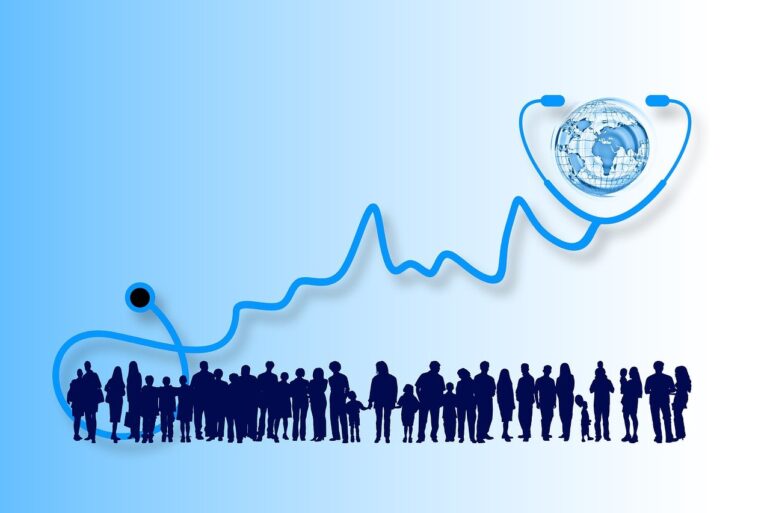Blockchain in Healthcare
Blockchain in healthcare is becoming increasingly important, providing a reliable way to secure and manage data. Blockchain is known for its security and in healthcare, security is the most crucial factor. This technology uses a decentralized system that makes patient records, supply chain details, and other sensitive information almost tamper-proof and completely traceable.
This helps reduce fraud, protects patient privacy, and improves the accuracy of medical records. By cutting out middlemen, blockchain in healthcare simplifies the data exchange process, making healthcare systems faster and more cost-effective.
As the healthcare industry continues to grow and face challenges like data breaches and inefficient practices, blockchain technology offers a promising solution to improve security, privacy, and efficiency.
Use cases of Blockchain in Healthcare
Here are the top 5 practical uses of blockchain technology in the healthcare sector:
1. Secure Patient Data Management:
Blockchain secures patient data by distributing it across multiple locations in an encrypted form, making unauthorized access and tampering nearly impossible. This method is just like writing a diary that automatically makes copies of itself and stores them in numerous secure locations every time an entry is made. If someone attempts to change an entry, all copies would need to be altered simultaneously to avoid detection and which is quite a dunting task.
This distributed ledger technology empowers patients to own their medical data, giving them the ability to grant or revoke access to healthcare providers as needed, which is particularly beneficial for maintaining privacy and control over one’s personal health information. Imagine if every health service provider could access a patient’s complete medical history in a secure and standardized format without needing to request records from multiple sources. This interoperability leads to better-coordinated care, more accurate diagnoses, and personalized treatment plans, all while respecting patient consent and privacy laws.
2. Enhanced Supply Chain Management:
Blockchain technology can create a “digital passport” for pharmaceuticals that logs each step of a drug’s journey from the factory to the pharmacy. This passport can include information such as origin, batch number, expiration date, and shipping history. By making this information readily available and verifiable, blockchain significantly reduces the risk of counterfeit drugs entering the supply chain, ensures compliance with regulations, and enhances consumer safety.
In the healthcare sector, in many countries fake companies use expired drugs and repackage these drugs which is really harmful for the patients, even causing deaths. Blockchain can help to reduce such fraudulent activities.
3. Credential Verification of Healthcare Professionals:
Blockchain provides a permanent, unalterable record for verifying the credentials of healthcare professionals. This digital ledger can store detailed records, including education, training, and employment history, accessible to employers and patients seeking confirmation of a practitioner’s qualifications. This system not only reduces the potential for credential fraud but also significantly speeds up the verification process during hiring or when practitioners seek privileges at new medical facilities.
4. IoT Security in Healthcare:
With the rise of wearable health monitors and other IoT devices in healthcare, securing these devices and their data transmissions is crucial. Blockchain offers a solution by providing a secure framework where data from these devices can be reliably and securely collected and stored. This ensures that health data generated by IoT devices remains private and tamper-proof, enabling reliable remote patient monitoring and real-time data usage for clinical decisions.
5. Research and Development:
Blockchain can revolutionize medical research by providing a secure platform for sharing patient data while maintaining confidentiality and integrity. Researchers can access a wider pool of data, which can lead to more robust studies and faster advancements in medical science. Furthermore, blockchain can facilitate patient participation in research by giving them control over who can access their data and for what purpose, thus encouraging more people to contribute to scientific discoveries without compromising their privacy.
These use cases demonstrate the potential of blockchain to address some of the most pressing challenges in the healthcare industry, from improving data security to enhancing the efficiency of clinical and administrative processes.
Final Thoughts:
The integration of blockchain in healthcare can solve many of the sector’s enduring challenges. By offering solutions that enhance patient data security, manage pharmaceutical supply chains effectively, and verify professional credentials accurately, blockchain is setting a new standard for transparency, efficiency, and security in healthcare. The journey toward widespread integration of blockchain in healthcare is just beginning, and its full potential is yet to be realized, promising a future where healthcare is more connected, secure, and patient-centered.

